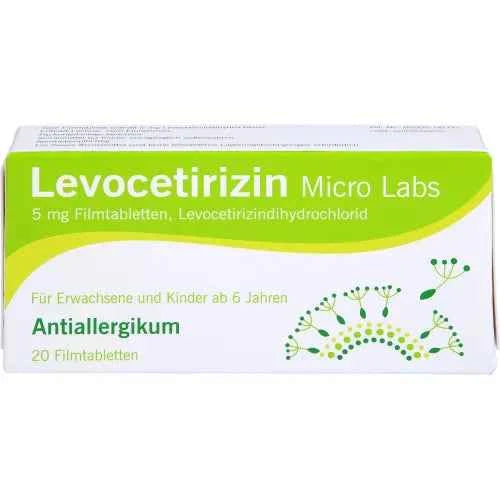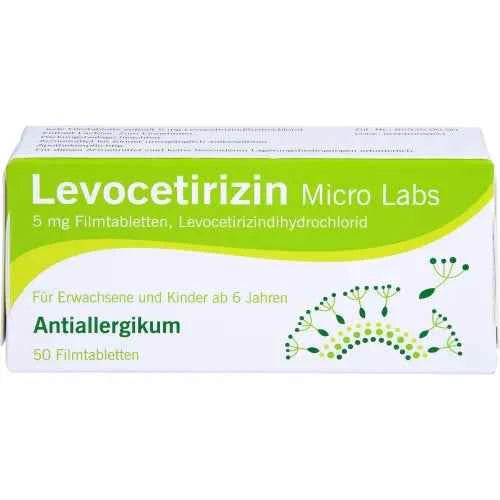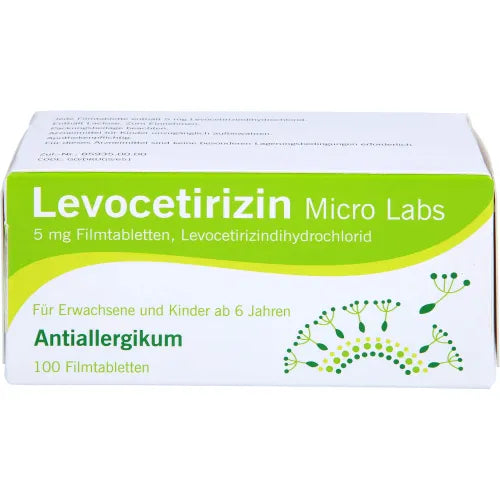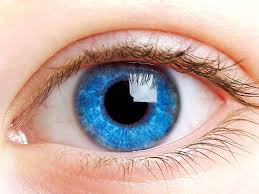1
/
of
1
Micro Labs GmbH
LEVOCETIRIZIN Micro Labs 5 mg film-coated tablets
LEVOCETIRIZIN Micro Labs 5 mg film-coated tablets
Regular price
£36.62 GBP
Regular price
£50.00 GBP
Sale price
£36.62 GBP
Unit price
/
per
Taxes included.
Couldn't load pickup availability
LEVOCETIRIZIN Micro Labs 5 mg film-coated tablets
For the treatment of symptoms such as allergic rhinitis and hives
Active ingredients
- 5 mg levocetirizine dihydrochloride
Excipients
- Magnesium stearate
- Silicon dioxide, highly dispersed
- Opadry white Y-1-700
- Cellulose, microcrystalline
- 63.5 mg lactose monohydrate
- Levocetirizine dihydrochloride is the active ingredient of the medicine.
- It is used to treat allergies.
-
For the treatment of symptoms of:
- allergic rhinitis (including persistent allergic rhinitis);
- Hives (urticaria).
-
The medicine must not be taken
- if you are allergic to levocetirizine dihydrochloride, cetirizine, hydroxyzine or any of the other ingredients of this medicine.
- if your kidney function is severely impaired (severe renal insufficiency with a creatinine clearance below 10 ml/min).
- Always take this medicine exactly as described or as your doctor or pharmacist has told you. Ask your doctor or pharmacist if you are not sure.
-
The recommended dose is
- Adults and children 6 years and older: 1 film-coated tablet daily.
-
Special dosage instructions for special patient groups:
-
Patients with kidney and liver disorders
- Patients with impaired kidney function may receive a lower dose, depending on the severity of their kidney disease and, in children, their body weight. The dose will be determined by your doctor.
- Patients with severely impaired kidney function should not take the preparation.
- Patients with only impaired liver function should take the normal prescribed dose.
- Patients with impaired liver and kidney function may receive a lower dose, depending on the severity of their kidney disease and, in children, their body weight. The dose will be determined by your doctor.
-
Older patients aged 65 and over
- If renal function is normal, no dose adjustment is necessary in elderly patients.
-
Use in children
- Use is not recommended for children under 6 years of age.
-
Patients with kidney and liver disorders
-
How long should you take the medicine?
- The duration of treatment depends on the type, duration and progression of your symptoms and will be determined by your doctor.
-
If you have taken more than you should
- If you take more than you should, adults may feel drowsy. Children may initially experience excitement and restlessness, followed by drowsiness.
- If you suspect an overdose, please notify your doctor, who will determine the necessary measures.
-
If you forget to take it
- Do not take a double dose to make up for a forgotten dose. This also applies if you take less than your doctor prescribed. Take the next dose at the next scheduled time.
-
If you stop taking
- Stopping treatment should not cause any harmful effects. However, in rare cases, pruritus (severe itching) may occur after stopping treatment, even if these symptoms were not present before treatment. These symptoms may disappear spontaneously. In some cases, the symptoms may be very intense and require resumption of treatment. Symptoms should disappear after resuming treatment.
- If you have any further questions on the use of this medicine, ask your doctor or pharmacist.
- Like all medicines, this medicine can cause side effects, although not everybody gets them.
-
Common side effects: may affect up to 1 in 10 people
- Dry mouth, headache, fatigue and drowsiness/drowsiness
-
Uncommon side effects: may affect up to 1 in 100 people
- Exhaustion and abdominal pain
-
Not known: Frequency cannot be estimated from the available data
- Other side effects include palpitations, rapid heartbeat/palpitations, cramps, tingling, dizziness, sudden loss of consciousness, tremors, altered sense of taste, vertigo, visual disturbances, blurred vision, oculogyration (uncontrollable, circular movement of the eyes), difficult or painful urination, incomplete bladder emptying, increased fluid retention in the tissues (edema), swelling of the skin and mucous membranes, especially in the face and throat area (angioneurotic edema), itching, fleeting skin rash, hives (swelling, redness and itching of the skin), localized skin rash (fixed drug eruption), shortness of breath, weight gain, muscle pain, joint pain, aggressive or agitated behavior, seeing or hearing things that are not real (hallucination), depression, insomnia, frequent thoughts of or preoccupation with suicide, nightmares, inflammation of the liver (hepatitis), Abnormal liver function tests, vomiting, increased appetite, nausea, and diarrhea have also been reported. Pruritus (severe itching) after discontinuation.
- At the first sign of a hypersensitivity reaction, stop taking the medicine and tell your doctor. Symptoms of a hypersensitivity reaction may include: swelling of the mouth, tongue, face, and/or throat; difficulty breathing or swallowing (chest tightness or wheezing); hives; and a sudden drop in blood pressure leading to collapse or shock, which can be fatal.
- If you experience any side effects, contact your doctor or pharmacist. This includes any possible side effects not listed.
Share





